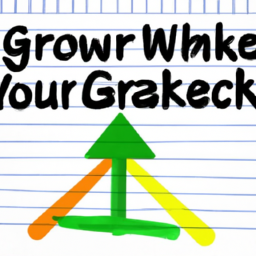5 Tips on Making Your Website Reach the Top of Google Search Rankings
How To Get Your Website To Rank Higher On Google
How To Get Your Website To Rank Higher On Google: 8 Steps to Follow
Getting your website to rank higher on Google requires an understanding of search engine optimization (SEO) tactics, algorithms, and the implementation of long term strategies. To help you out, here are 8 essential steps you can use to increase your website's chances of rising up the ranks on Google.
1- Optimize Your Content
Search engine algorithms are constantly evaluating websites' content and ranking them based on relevancy. A great way to get your website to rank higher is by optimizing your content for your target audience. Make sure to include keywords relevant to your website's niche and include other important elements such as headings, bullet points, and meta tags.
2- Get On-Page SEO Right
On-page SEO includes optimizing the content, code, and structure of a website to make sure it meets Google's guidelines. A few useful tips to follow to increase your on-page SEO include:
- Using descriptive titles, URLs, and meta descriptions
- Including relevant details such as addresses and phone numbers in a website
- Using structured data
- Ensuring page elements have the right alt attributes
3- Link Building
Link building is the process of getting links from other websites to your own. These websites refer to your website from their content, which is then indexed by search engine algorithms. Over time, these links build up a link juice, which increases your website's chances of ranking higher. To do this, you can create good content and reach out to other website authors to request a link from their content.
4- Create Quality Content
The key to getting your website to rank higher is to create quality content. Quality content includes topics that are relevant to your industry, displays a high level of accuracy, and is properly optimized for search engine algorithms. Take the time to research and create content that meets these criteria, and your website will be on its way to the top!
5- Increase Your Website Loading Speed
Search engines prefer websites that load quickly. Make sure your website is optimized for speed and has codes, scripts, and images that don't slow down loading time. If your website's loading time is too slow, search engine algorithms may not index your website or rank it low.
6- Social Media Signals
Social signals, such as likes and shares, help Google determine the quality of content. Having many social media shares and likes on your content helps show Google that your content is quality and reliable.
7- Use Google Analytics
Google Analytics is a free tool provided by Google that helps website owners track the performance of their website. With it, you can keep track of visitors, page views, and analyze data to better understand how to improve your website.
8- Follow Google Guidelines
Google algorithms are constantly changing, and it's important to be up-to-date with their guidelines. Doing so helps ensure your website is meeting Google's standards and can help it rank higher.
Final Word
Getting your website to rank higher on Google requires an understanding of SEO algorithms and the implementation of long term strategies. Following the 8 steps outlined in this article should help to increase your website's chances of ranking higher. Ultimately, following quality guidelines and creating quality content will bring the best results.
Good luck with your website journey!
